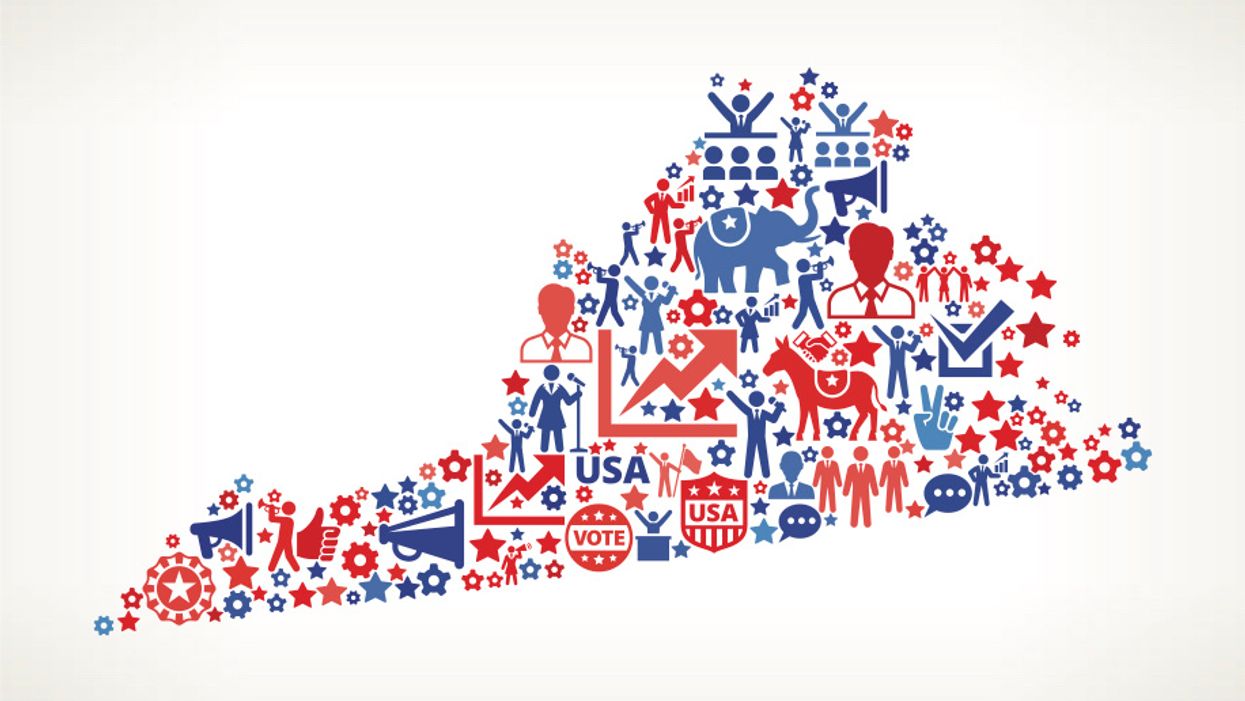Virginia state lawmakers on Tuesday approved a package of bills to make it easier to register and vote in a state that will likely play a crucial role in deciding the outcome of November's election.
The legislation changes Election Day to a state holiday, allows for "no-excuse" absentee voting, establishes automatic voter registration and repeals a requirement that voters show photo identification at the polls. This would make Virginia the first state to repeal such a law.
Passing legislation to make it easier to vote fulfills the legislative promises of Democratic lawmakers who won control of the General Assembly last year and now control both the statehouse and governor's mansion for the first time since 1993.
The four bills are expected to be signed by Democratic Gov. Ralph Northam, who has expressed support for legislation aimed at expanding access to the ballot box.
"We are one step closer to a more representative and inclusive Virginia," Northam said Tuesday in a statement.
Virginia was a reliably Republican state in presidential elections from 1952-2004 (with the exception of the Lyndon Johnson landslide in 1964). Democrats have won the last three elections, with Hillary Clinton edging Donald Trump by about 6 percentage points in 2016.
One elections-related bill that failed to advance Tuesday was a proposal for Virginia to join 16 other states that have signed on to the National Popular Vote Compact, an agreement whereby a participating state agrees to award its electoral votes to the winner of the nationwide popular vote. The compact goes in effect only after states that hold a majority of electoral votes have joined.
The proposal passed the state House two weeks ago but failed to advance Tuesday out of a Senate committee, which voted to reconsider the idea in 2021.
National Popular Vote, the advocacy group leading the popular vote movement, expressed disappointment but added a hint of optimism about the bill's chances next year.
"This wasn't the result we wanted but not terrible either," NPV tweeted following the vote. "The VA Senate committee vote postponed action until next January when we will get another chance to send the bill to the governor."
By January 2021, Virginia and other states that have joined or will be considering joining the compact will likely know whether the agreement is a legally viable way of sidestepping the Electoral College's grip on presidential elections. The 16 states that have passed the compact represent 196 electoral votes, or 74 votes short of the 270 needed to enact the interstate compact.
On April 28, the Supreme Court is expected to hear arguments in Chiafalo v. State of Washington, a case to resolve the question of whether states can legally bind their presidential electors to vote for a particular candidate. Should the court decide that electors are free to cast a vote for whomever they choose, the ruling would essentially undermine the legitimacy of the compact since states would have no authority to enforce it.




















